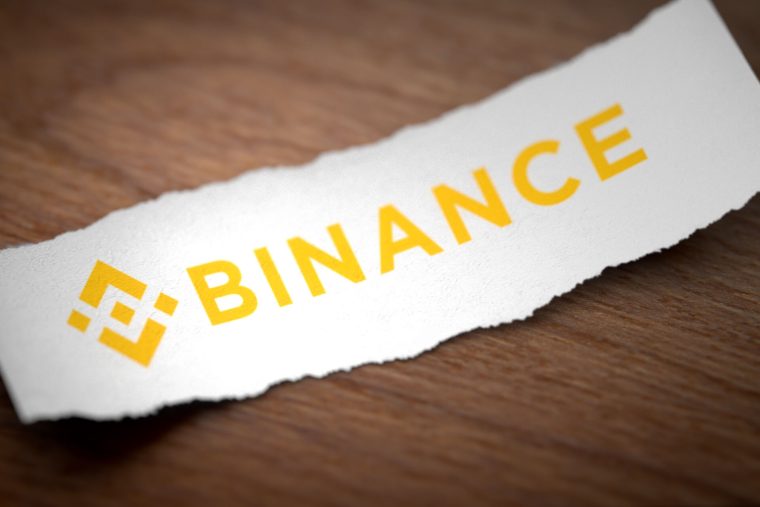
The US Securities and Exchange Commission (SEC) has accused Binance and its founder Changpeng Zhao (often referred to as ‘CZ’) of running a ‘web of deception.’ breaking various US securities laws.
The regulatory body filed 13 charges against Zhao and Binance Holdings Ltd. which owns both the international Binance.com exchange and its US affiliate Binance.US. The charges were outlined in a SEC press release that dropped Monday.
The SEC alleges that Zhao and Binance claimed it restricted all US users from its Binance.com platform (not Binance.US) but still allowed rich US investors to use it, subverting its own controls.
Perhaps the least surprising accusation in the press release covered how Binance.US was controlled. It outlined how Zhao and Binance claimed that Binance.US was an entirely separate entity while controlling it from behind the scenes.
One of the most intimidating charges for the crypto market in the release detailed that the SEC believed Binance and Zhao were commingling (or diverting) customer assets to various separate entities. These entities include Sigma Chain and Merit Peak Limited, both of which Zhao owns and controls.
If true, is bad for Binance as it sounds a lot like the crux of the FTX disaster where FTX diverted and commingled customer funds into various risky entities against its terms of service. While this does sound scary, there is no evidence (so far) that Binance no longer has the funds it allegedly commingled or diverted.
Not only did @SBF_FTX commingle and steal client funds, he also lied that a primary stock offering by FTX was really a secondary.
— zerohedge (@zerohedge) November 18, 2022
The SEC also claims that Binance and its subsidiaries broke a myriad of other rules, mostly surrounding its failure to register Binance.com and Binance.US as exchanges, dealers, and clearing houses. the unregistered offerings and sales. It also said that Binance illegally offered BNB and BUSD as well as its Simple Earn and BNB Vault features because they were never registered.
Binance’s Response to the Allegations
Binance released a blog post shortly after the SEC’s press release was circulated, to respond to the allegations. In the post, it states that it is “disappointed” that the SEC decided to file the complaint and that it will “defend [the] platform vigorously.”
The post seems to blame the SEC for not “productively engaging” with them to clarify and help solve the issues it was worried about. It went on to claim that all user assets on Binance, Binance.US, and its affiliate platforms have never been at risk.
Binance doesn’t seem to refute many of the SEC’s specific claims but it does wholeheartedly deny that user funds are at risk. For example, it didn’t say anything about the SEC’s claim of commingling and diverting customer assets. It just said that the funds weren’t at risk, which is a bit worrying.
The post even suggests that the filing is a power grab from the SEC, trying to “claim jurisdictional ground from other regulators.” Some experts in the crypto community seem to agree, including the brilliant founder of Cardano (and co-founder of Ethereum) Charles Hoskinson.
With respect to Binance, I’m reading through the SEC complaint. It’s over 130 pages, but seems like the next in a series of steps to implement chokepoint 2.0 in the United States. The end goal is a agenda based CBDC partnered with a handful of massive banks and end-to-end control…
— Charles Hoskinson (@IOHK_Charles) June 5, 2023
It’s important to note that Hoskinson has a stake in the filing, however. His brainchild Cardano ($ADA) was included in the SEC’s list of unregistered securities in the filing.
1/ BREAKING: SEC sues Binance
HEADLINE: The SEC complaint identifies 10 tokens it deems to be unregistered crypto asset securities.
The target list includes some of the biggest names in crypto:$SOL, $ADA, $MATIC, $FIL, $ATOM, $SAND, $MANA, $ALGO, $AXS, and $COTI.
more…
— MetaLawMan (@MetaLawMan) June 5, 2023
This list of tokens deemed securities by the SEC could very well be the most important thing to come out of the lawsuit. All of these tokens, especially $ADA, $SOL, and $MATIC, are massive and hold vital places in the cryptocurrency world.
It will be interesting to see what the SEC does next. Many of the top crypto exchanges, including a few registered in the US, are actively allowing users to trade these tokens. Members of the crypto community are already calling the SEC lawsuit an attack on the crypto world as a whole, not just Binance.
It’s not SEC vs CZ/Binance
It’s SEC vs Crypto.
We gotta act together !
#Crypto #Binance #SEC@cz_binance @binance @BinanceUS
— Rohan JT (@RohanJT) June 5, 2023
How to Keep Your Cryptos Safe After the Binance Lawsuit
Unless Binance manages to lose a significant portion of its customers’ funds and no longer has enough to fulfill all withdrawals, Binance customers will likely be fine. This doesn’t mean that you should be complacent, however.
There is no good reason to keep all of your cryptos on any exchange for extended periods of time. Most cybersecurity experts in crypto stress that you should only keep crypto on an exchange when you are about to trade it.
Otherwise, it’s just not worth it. The convenience of being able to trade your cryptos whenever you want is great until it all disappears in a bank run. Most experts suggest that they self-custody the vast majority of their cryptocurrencies.
This simply entails signing up for a free crypto wallet like Metamask or Rainbow Wallet. If you want even more security, you may want to pick up a hardware wallet from a top brand like Ledger or Trezor. If you go this route, make sure that you buy the wallet directly from the manufacturer to ensure it is safe.
These wallets won’t stop every possible attack such as phishing or social engineering attacks, but your cryptos will be generally much safer than they would be on an exchange.
Related Articles: